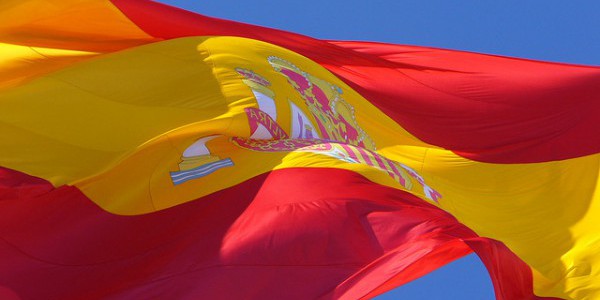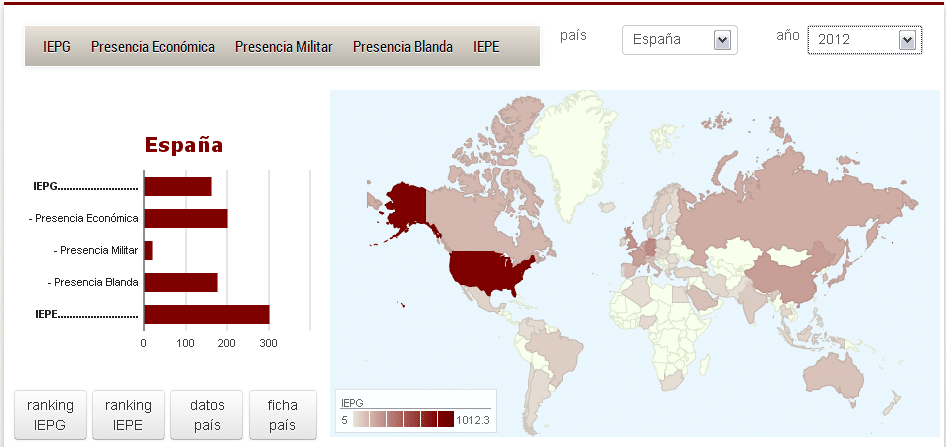
We continue our series of posts on what’s new on the Elcano Global Presence Index (IEPG) 2012 ranking and it’s about time to talk about our country. Spain is 11th on the IEPG ranking (13th GDP and population of 46,196,276 in 2012), a position it has retained over the past decade. It has improved in all of the Index’s variables, although this has been insufficient to maintain or move up its position. Spain’s global presence is supported by the increase in its economic dimension and a smaller relative increase in its ‘soft’ presence, while its military presence has dropped significantly.
The economic variables have exercised a growing influence in determining the Spanish global presence. This dimension meant the 27% of the total value of IEPG in 1990, while in 2012 his weight was up to 47%. The Soft presence of Spain has also grown steadily since the nineties, although at a lesser rate, so that, dropping from 66% in 1990 to 50% in 2012. Tourism continues to be one of Spain’s main global assets, with significant increases in the first years of the 21st century. To this should be added the rise since 2005 in Spain’s presence in sports, migration and development cooperation. As for the remaining variables, Spain’s position remains weak. The economic crisis has affected the growth of Spain’s global presence. Although exports of primary and manufactured goods continue to rise, the growth in services exports has slowed down, investment has contracted and, most markedly, Spain’s presence in development cooperation has declined.
In relation to the presence in the European Union, Spain ranks 5th, ahead of Italy since 2010. This position depends mainly on its soft dimension, which is relatively more important in the European (55% in 2012) than in the global sphere. Its economic presence in Europe has also grown since 2005, mainly due to the variables of primary goods and services, while manufactures and investments have grown at a slower rate. If we consider the evolution between 2005 and 2012, Spain is the 2nd country most benefited –in terms of intra-European presence– by its adherence to the European Union, after the United Kingdom.
More data and info on the Elcano Global Presence Index website.





